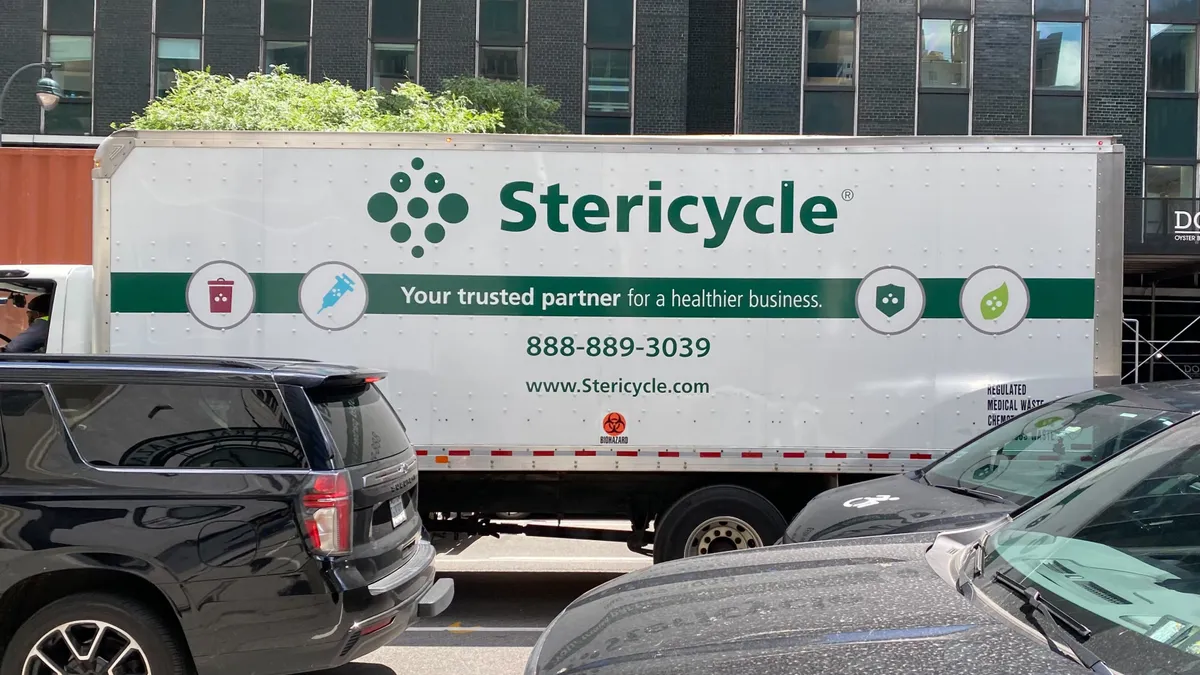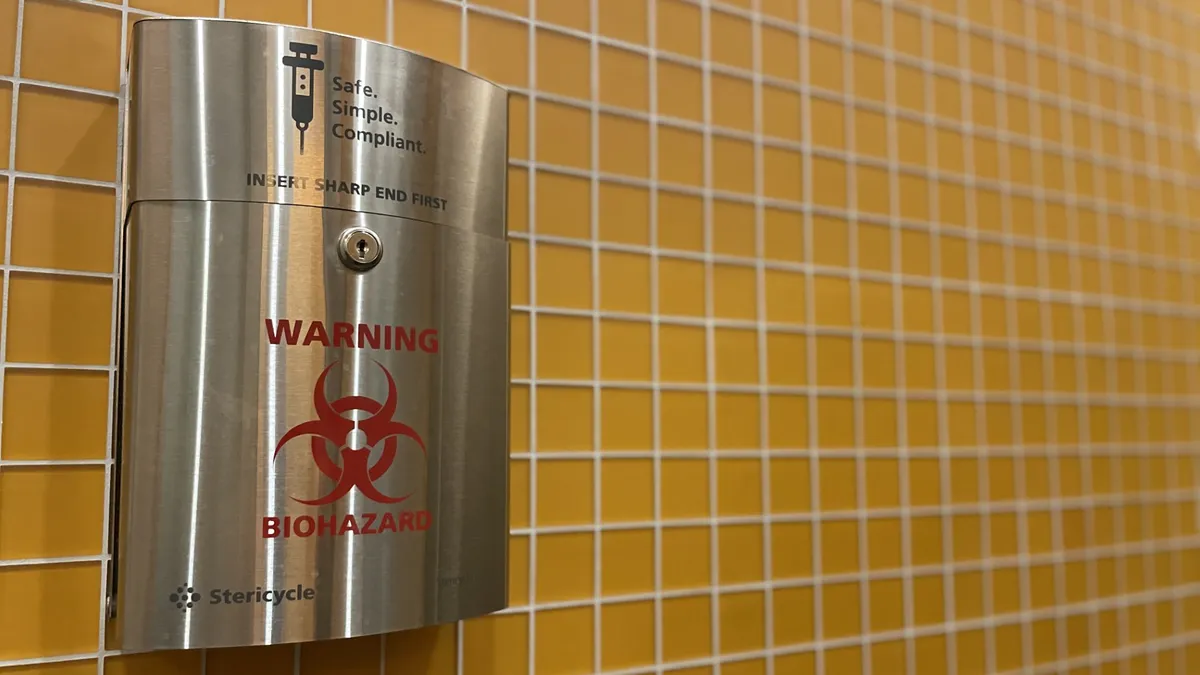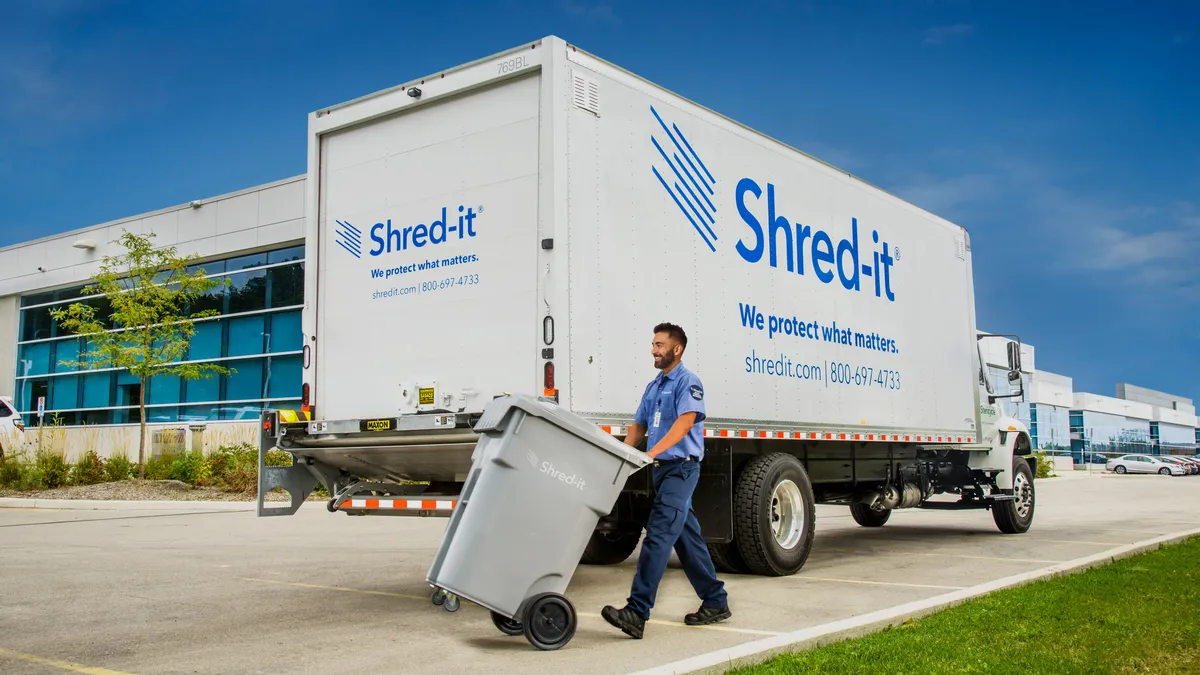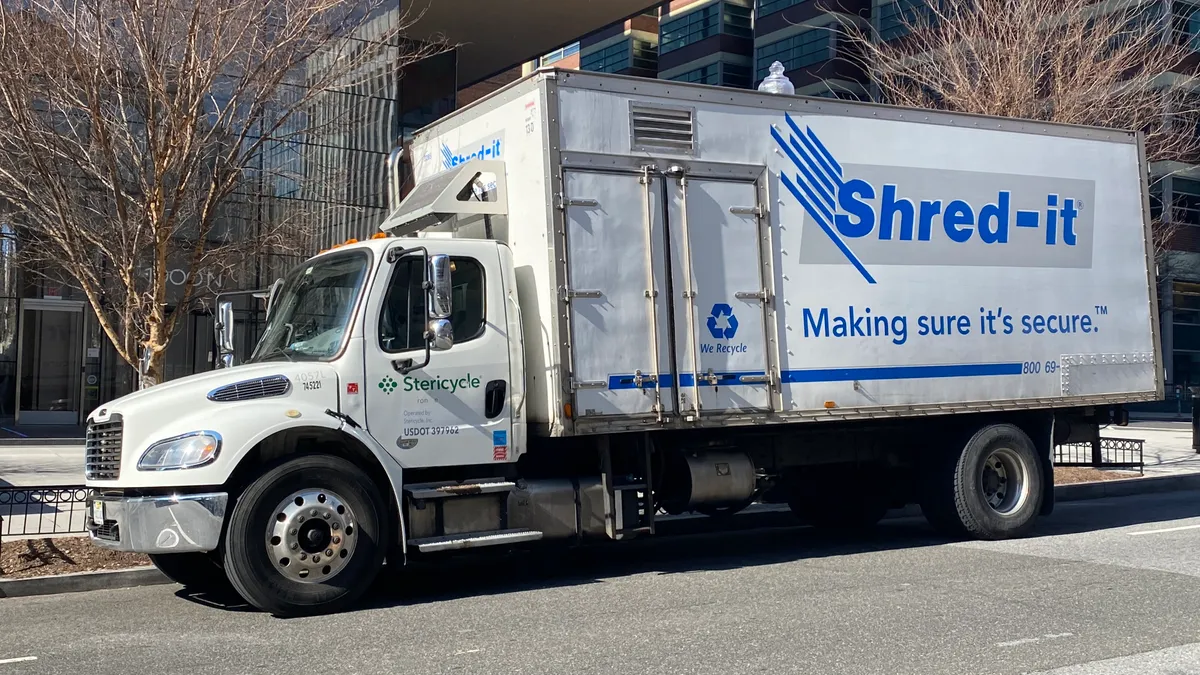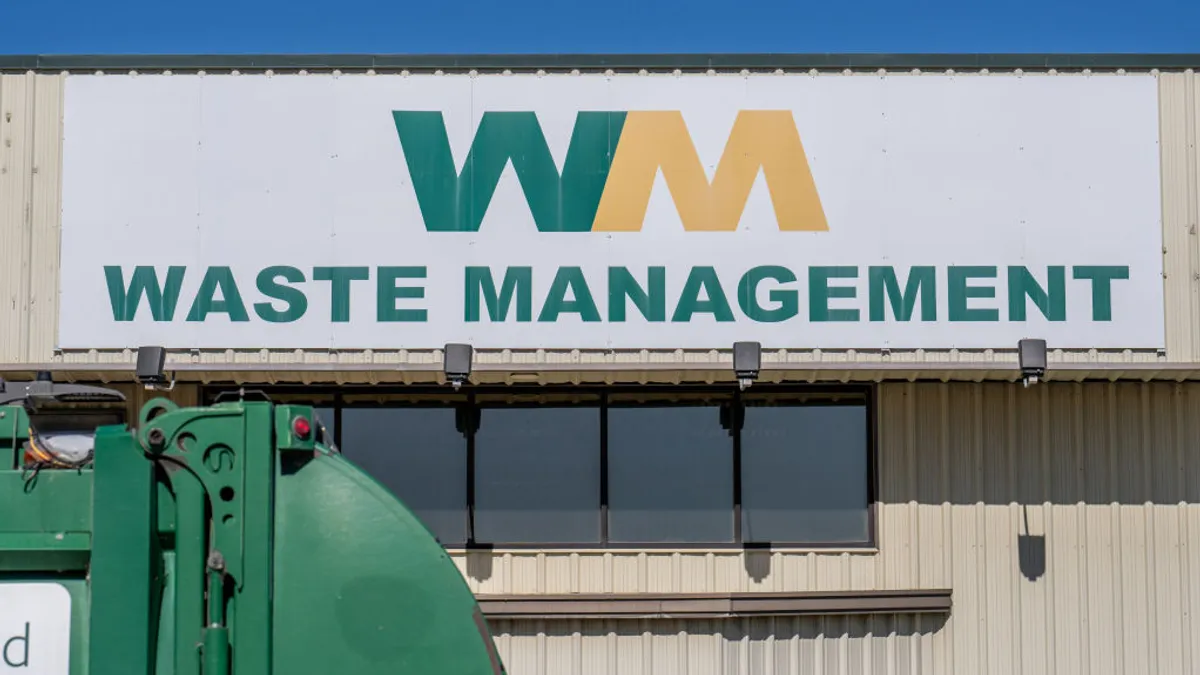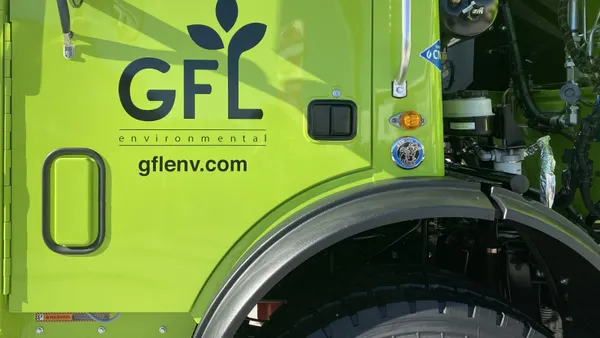WM plans to acquire Stericycle for approximately $7.2 billion, including $1.4 billion in debt, in an effort to expand its healthcare waste services, the companies announced Monday.
The deal is expected to close as early as Q4, subject to regulatory approvals and approval by Stericycle shareholders. WM plans to acquire all outstanding shares of Stericycle for $62 per share in cash.
Illinois-based Stericycle specializes in medical waste collection, disposal and treatment. The company also offers secure information destruction services through its Shred-It business. In a press release, WM said it sees the deal as a way to expand existing services for healthcare waste and to become a “single, trusted provider known for safety, compliance and environmental stewardship.”
WM expects the deal to generate more than $125 million in annual run-rate synergies, and expects it to add to earnings and cash flows within a year of the deal’s closing. WM plans to finance the acquisition using a combination of bank debt and senior notes.
“We have a proven track record of integrating and optimizing acquired businesses that benefit our customers and employees and deliver a strong return on investment for our shareholders,” said WM CEO Jim Fish in a statement.
WM is betting on a strong growth outlook for healthcare services in North America in coming years and expects the sector to “deliver revenue growth that surpasses the strong fundamentals of its core solid waste business.”
Stericycle considers itself a leader in both regulated waste management and secure information destruction due to its “scale, breadth of services, national transportation network and comprehensive treatment network,” according to a recent securities filing.
“As customers seek to manage a greater volume and variety of materials in a safe, responsible, and sustainable way, Stericycle’s knowledge and expertise in regulated medical waste and secure information destruction are compelling additions to WM’s broad portfolio of environmental solutions,” said Stericycle CEO Cindy Miller in a statement.
Bloomberg first reported the potential for Stericycle to sell on May 24, without naming a buyer. At the time, RBC Capital Markets said there had “long been speculation Stericycle could be an attractive strategic target for several of the solid waste companies looking to expand in a relatively faster-growing adjacent waste market.” The Wall Street Journal first reported on June 2 that WM planned to buy the company.
Stericycle has been steadily working for the past few years on numerous improvements to enhance profitability. It recently rolled out a major enterprise resource planning system meant to streamline nearly all of the company’s operations. It has also gone through a series of divestitures and facility upgrades, as well as completed a recent round of layoffs. Stericycle has also worked for the last few years to reduce debt and improve its debt leverage.
“Our sustained focus and commitment to transforming our business over the past five years has uniquely positioned Stericycle for this transaction,” Miller said.
Stericycle is in the process of opening its new regulated medical waste incinerator in McCarran, Nevada. The company recently said the construction phase is still on track to finish during Q2, with a testing phase to follow.
Shred-It also recently launched ProtectPlus, a subscription document destruction service that includes cybersecurity and privacy training for customers. WM said it sees the deal as a way to help enhance the environmental impact of Stericycle’s SID business offerings.
It’s unclear how the deal will affect jobs or company positions, though Miller mentioned in the statement that the transaction “supports investment in the growth and development of our team members.”
During its most recent earnings call, Stericycle reported its North American regulated waste and compliance services sector grew by $7.1 million in revenue, its eighth consecutive quarter for growth. Its overall Q1 revenue was $664.9 million. WM reported Q1 revenue of $5.16 billion.
WM says it is sticking to its normal capital allocation plans for 2024 and will return to share repurchases within 18 months of the acquisition’s close.



